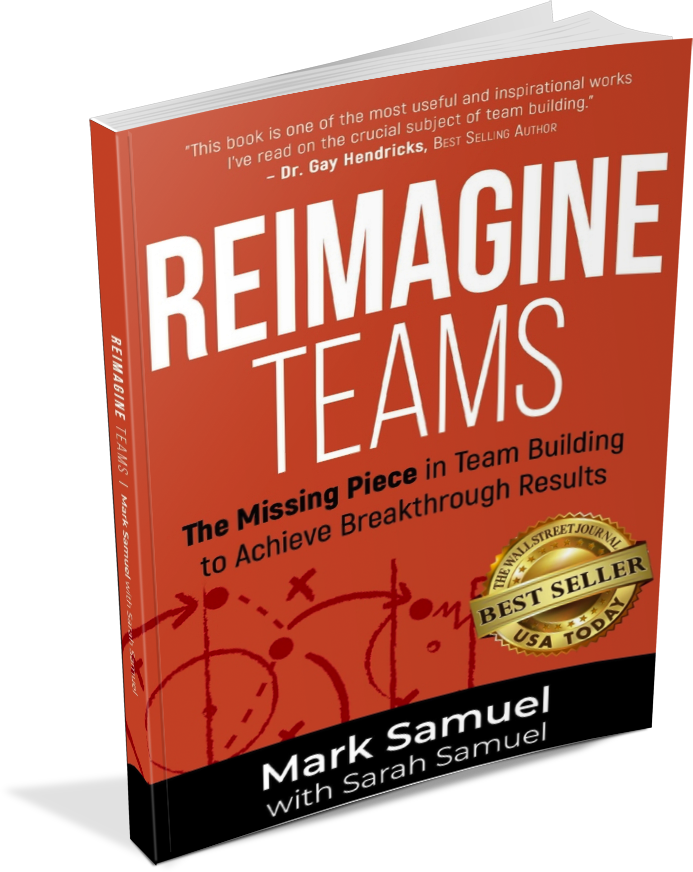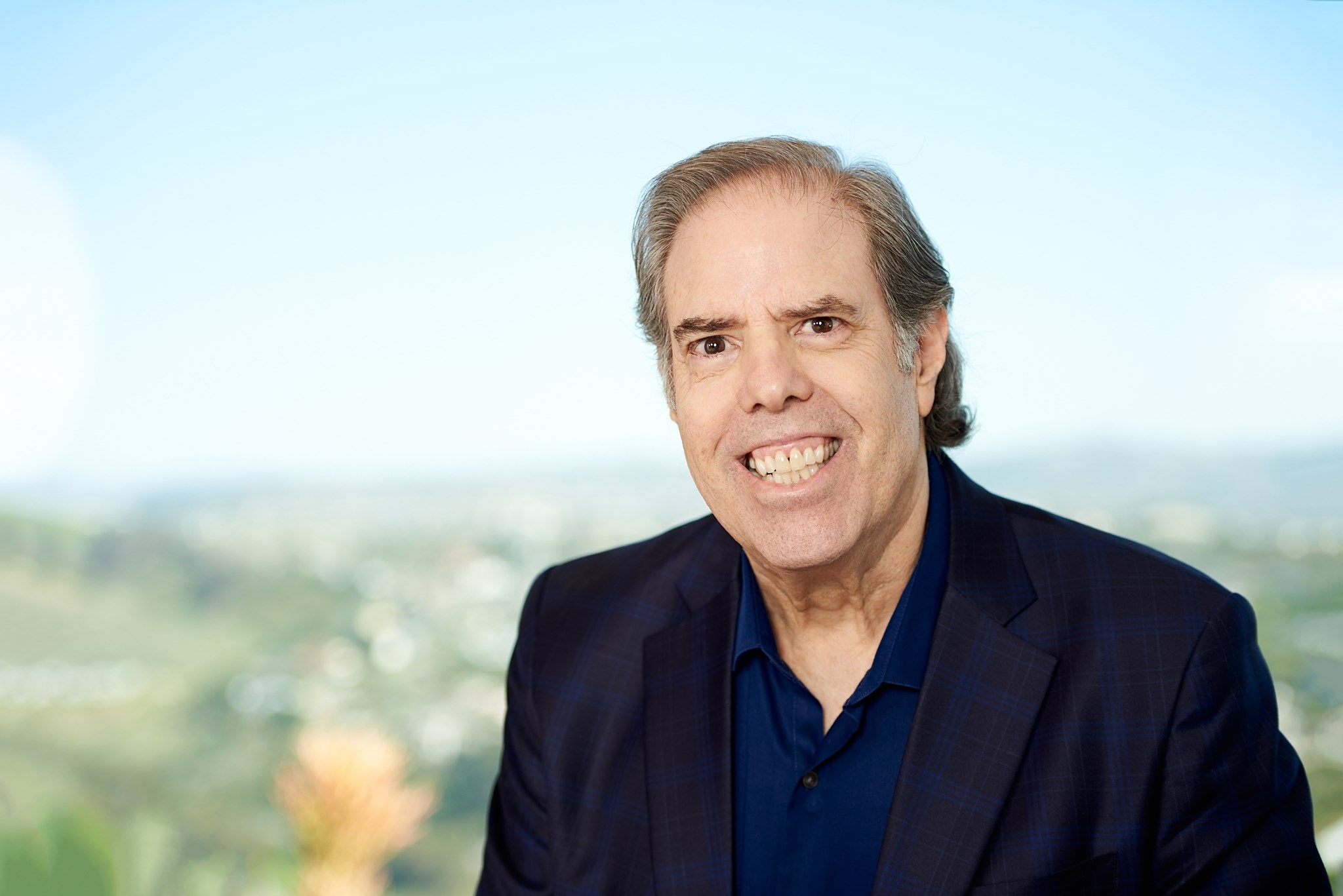HOW I LEARNED A PIECE WAS MISSING
(Book excerpt from Chapter 1 of the new WSJ / USA TODAY bestseller “Reimagine Teams: The Missing Piece in Team Building to Achieve Breakthrough Results”)
Typical business team building hasn’t changed much since the 1980s when I first learned it and generally consists of some mix of the following:
- Team Building Games
- Style Inventories
- Creating Team Guidelines
- Conflict Management Skills
- Team Visions
- Action Planning
Since the 1960s, Organizational Development experts have believed that building relationships using the above activities and processes is the best and most effective way to build teams, and this is what I learned while earning my Master’s Degree in Business and Organization Development at UC Irvine.
My education proved effective as I implemented several team-building programs after graduating that provided the highest scores possible in client satisfaction. After five successful years, I was shocked to discover that even implementing the best team-building practices known at that time and receiving top mark evaluations weren’t giving me the results I wanted—something was missing!
In 1983, I facilitated a team-building session for a leadership team that had many issues. Their trust, support, and respect for one another were very low, and they weren’t on the same page about the direction of the organization; some wanted to make changes, while others wanted to keep the status quo. They didn’t respect decisions made by the team and imple- mented only what was good for their own department. Their communica- tion to the rest of the organization gave conflicting messages, often telling their direct reports things like, “The team decided on this change, but I didn’t agree, so just go through the motions to make it look like you are implementing the decision until it gets reversed.”
After the team-building effort, everyone was excited about the results. During the program, we developed Team Agreements, resolved conflicts between team members, and developed a vision that everyone was aligned with and enthusiastic about implementing. They learned about each other’s styles and gained awareness about the importance of working as a team. They also created a great action plan for what they were going to do to follow through on their team-building experience. The most common feedback I received was, “The team-building effort not only moved us forward as a team but also gave me skills I can use with my family.” It felt great to get such fantastic results.
Three months later, I had an appointment with the CEO of the leadership team I had worked with. On my way to their office, I ran into one team member after another, since they were all residing in the Executive Suite. Each person greeted me with open arms and an acknowl- edgment of the positive team-building experience I delivered. I was on cloud nine of ego gratification. This is exactly what I loved about being a Team-Building Facilitator!
Gina, the last person to see me before I got to the CEO’s office, greeted me with the warmest hug and shared, “The Team-Building experience you led was life-changing! I am so grateful for what I became aware of, what I learned, and how I have been able to improve my relationship with my husband and teenage son!”
While my ego was given a great boost and I was feeling very successful, I was surprised that Gina didn’t mention the leadership team, so I asked, “I’m glad you’re finding relationship success with your family, but how is your team doing since we last met?” Gina quickly responded, “Oh, we all loved your program, but within a few weeks we went back to our old habits, and now we’re just as dysfunc tional as ever.”
I was in shock as self-judgment kicked in, and I concluded that I was a complete failure at building teams that produced sustainable results. While I loved receiving praise and great evaluations, I measured my success by the degree to which the teams I worked with were able to achieve lasting results … and on this front, I had failed!
Informal Education – What Business Teams Can Learn from Sports Teams, Symphonies & Bands
From the age of nine to twenty, I played on eight different baseball teams, four of which came in first place within our league. From the age of thirteen to the age of twenty-four, I played in nine different musical groups, including two honor bands for all of Southern California, two bands that won first place in competitions against other schools, and a rock band that won first place at the Hollywood Bowl Battle of the Bands.
Not once did I think about my vast experience participating on winning teams while getting my Master’s Degree, and not once did I think of my experience on teams during the five years I spent building business teams professionally. It wasn’t until 1983, when my failure to get sustainable results for my clients caused an existential crisis within me, that I began to reflect on my own personal experience on teams.
In all of the top-performing baseball teams, symphonies, or bands that I was fortunate to be a part of growing up, we never became a winning team by focusing on relationships. There were NO styles inventories to help us understand each other’s differences. There were NO communi- cation skill building or development of conflict-management skills. We NEVER spent time building trust, solving team puzzles, or having fun on a ropes course.
At the same time, we never focused on desired outcomes, individual metrics, or hero accomplishments either. Not once!
Instead, we always started with a clear understanding of the purpose of our team. In baseball, the coach began by sharing his vision for the team and the kind of team we were going to focus on becoming … a hitting team or a pitching team or a team that revolved around a few key players. In each music group it was the same. We were given a clear purpose for our group—to play a certain style of music or to prepare for a particular performance or recording.
It was our team execution, our Team Habits, and our accountability to one another (not to the coach or musical director) that built our trust, shaped our communication, and led our decision-making. Team members’ preferred style and opinions never shaped our execution, even though the coach or musical director was open to feedback.
While we practiced being the best we could be, we never had to be perfect because we always planned and prepared for breakdowns. We practiced “proactive recovery” as much as we planned to perform perfectly. We were prepared for anything!
It wasn’t good enough to have great skills or know the baseball play or piece of music. For each baseball team, we focused on timing, sensing skills, and speed to become the best. For each music group, we focused on timing, sensing skills, and listening to each other for optimal performance. When an individual made a mistake or caused a breakdown, we didn’t blame the person. We all practiced together in support of building that team member’s individual skill and team execution. We all worked hard individually to improve our skills, but we always came back to our team, orchestra, or band to ensure the highest level of team execution and performance. Team Habits, not individual stars, won games.
In The Last Dance, an HBO documentary about the Chicago Bulls and Michael Jordan, we learn that when Michael Jordan first became a member of the Bulls, they centered all the plays around him. And they won more games. In fact, they won their division several times in a row. But they never won the NBA Championship. When Phil Jackson was hired as the coach, he transformed the Bulls from centering around Michael Jordan to operating more as a unified team that used the various talents of several players, including Michael Jordan. The next year, they won the NBA Championship and continued winning for three years in a row.
Now, you might be saying, “But Mark, business teams are different from sports teams and music groups,” and you’re right. Business teams are more complex, involve more people, and never have an off-season in which they can rehearse or practice. And while that sounds like a good rationale for excusing business teams from acting more like sports teams or music groups, I’m not ready to let them off the hook just yet. Take meetings, for example. Meetings should be the vehicle for practicing team execution, but currently, they’re used for unnecessary information sharing and are often perceived as overscheduled and a waste of time. In fact, 30% of the information shared in any given meeting is a repeat of information shared in another meeting!
Answer this for yourself: How many meetings are spent listening to presentations, sharing information, and tracking metrics until people’s eyes glaze over or they pull out their phones to handle more pressing emails or texts? How often do you leave team meetings without ever talking about
improving team execution, coordination, problem solving, or making decisions? Can you imagine how much teams would improve if they spent as much time in meetings solving problems and removing breakdowns as they do sharing information, debating different opinions, or listening to presentations?
My perspective is that, yes, businesses are more complex than sports teams or music groups, and that is exactly the reason that they should spend more time optimizing team execution rather than hoping it will magically come together.
Greater complexity means a greater number of potential breakdowns, so it’s only logical that greater emphasis on team execution should be made to address those complexities. The more linkages that exist, the greater the chance of weakness and failure.
Access more information about the book, as well as two free chapters and a free team assessment here!



